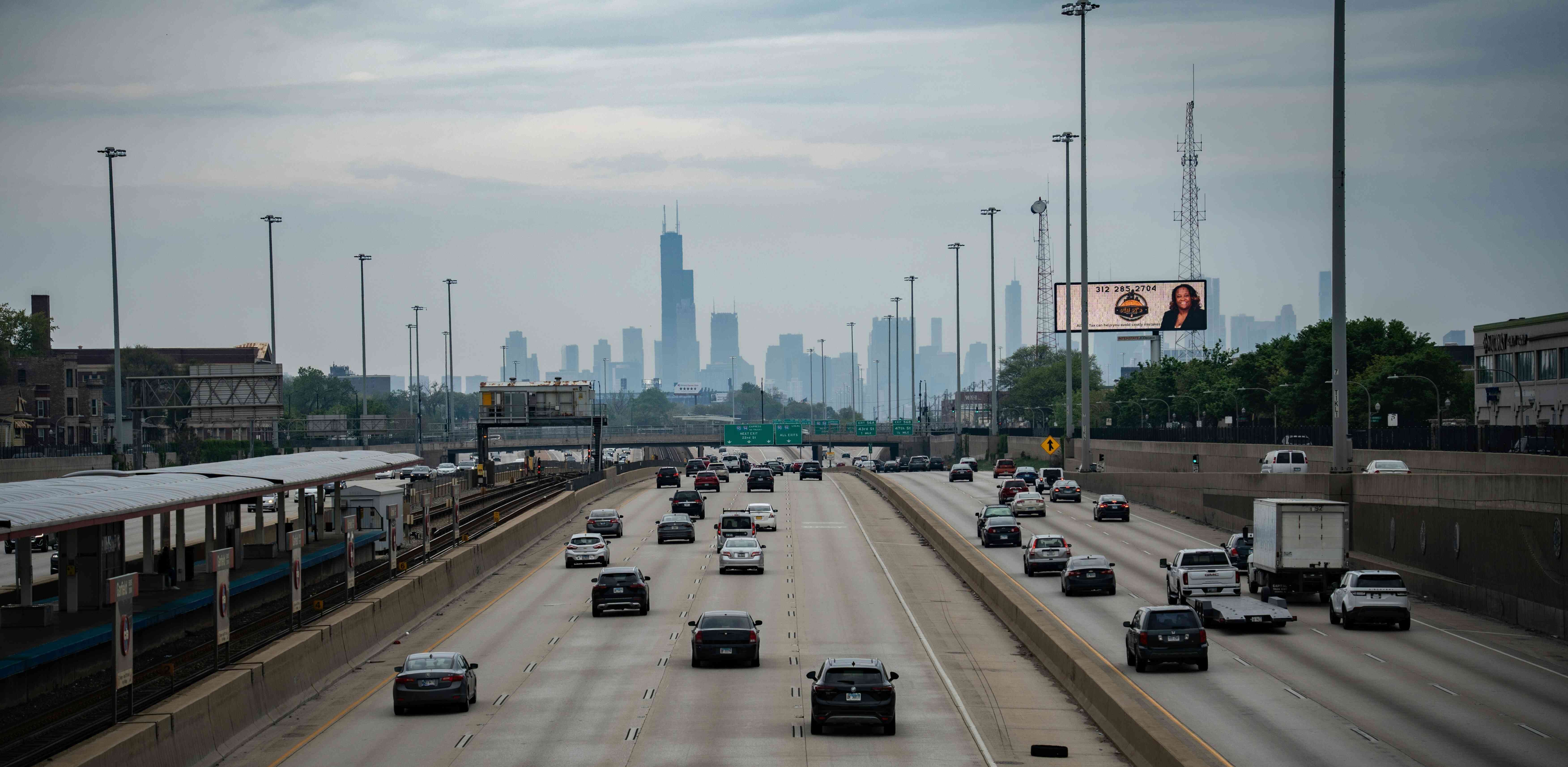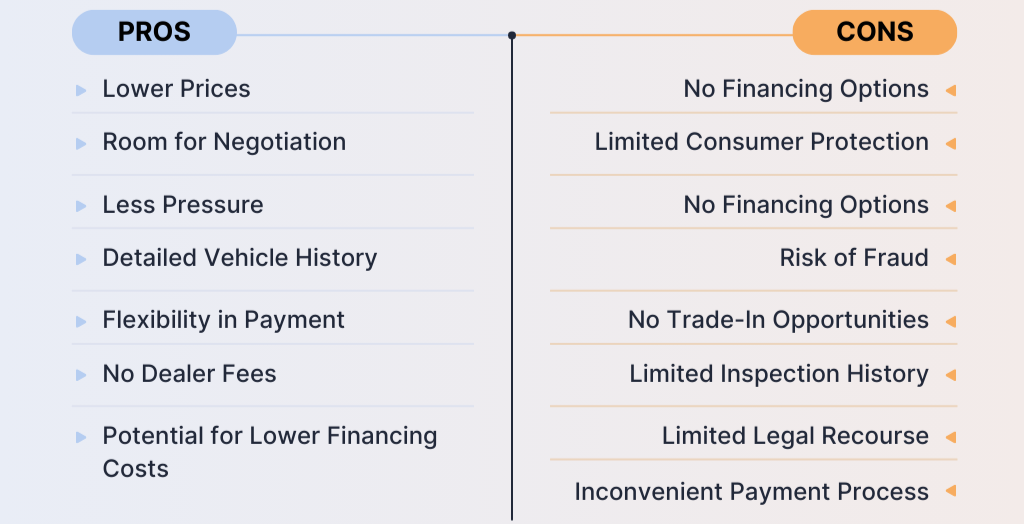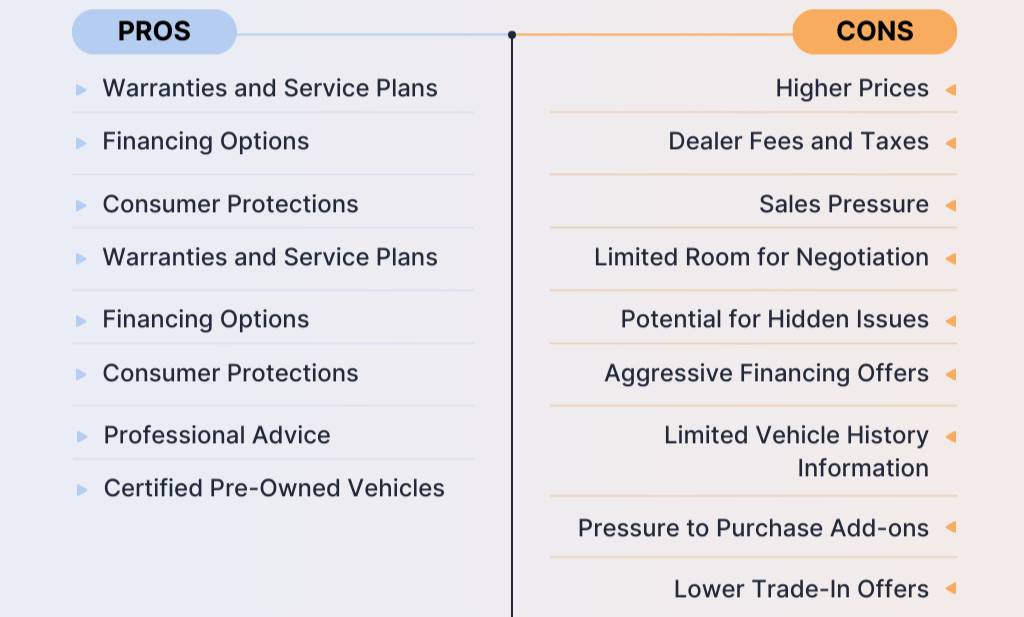
When buying a used car in Illinois, you’ll have to choose between buying from a private seller or a dealership. Both have their upsides and downsides, so it’s important to understand what each offers. Before you buy, make sure to do a license plate lookup for Illinois. This process helps you check important details about the vehicle’s past, so you can make a smart choice.
Buying from dealerships usually gives you more peace of mind because they must offer warranties and follow state rules. However, buying from a private seller can be cheaper, but it comes with more risks. You may have fewer options if problems come up after the sale. It’s important to seek thorough inspection, check vehicle history, and do some background research to know the best steps.
This guide will compare both options, check dealership fees, taxes, warranties, and why you should find license plate number.
Buying from a Private Seller: Pros and Cons

Pros:
- Lower Prices: Buying from private sellers can be cheaper since they don’t have miscellaneous costs. Plus, they may offer lower prices.
- Room for Negotiation: Private sellers are usually more open to negotiating the price, so you might get better deals.
- Less Pressure: Dealing with private sellers tends to be less stressful than buying from dealerships.
- Detailed Vehicle History: Private sellers often share more details about the car’s history, helping you understand its condition better.
- Flexibility in Payment: Private sellers may be more willing to accept different payment methods or work out payment plans.
- No Dealer Fees: Buying private means you won’t have to pay extra dealer fees, like processing or documentation charges.
- Potential for Lower Financing Costs: Without a dealership involved, you may find financing options with better terms.
Cons:
- No Warranties: Private sellers don’t have to offer warranties, so you’re on your own if something breaks.
- Limited Consumer Protection: Illinois law protects you when buying from a dealer, but private sales don’t have the same rules.
- No Financing Options: Private sellers don’t usually offer financing, so you’ll need to arrange your own loan or payment.
- Risk of Fraud: Private sellers might not be upfront, so you could end up with a bad car. Private sales can also involve scams like fake titles, rolled-back odometers, or stolen cars.
- No Trade-In Opportunities: You can’t trade in your old car for a discount when buying from a private seller.
- Limited Inspection History: You may not be able to see the full service or repair history.
- Limited Legal Recourse: It’s harder to get legal help since private sales are usually “as-is.”
- Inconvenient Payment Process: Private sellers might only accept cash or other less-secure payment methods.
Buying from a Dealership: Pros and Cons

Pros:
- Warranties and Service Plans: Dealerships often offer warranties or service plans to protect you from future repair costs, especially when buying a used car.
- Financing Options: Dealerships may provide financing through their own lenders, making it easier to manage payments.
- Consumer Protections: In Illinois, dealerships must follow state laws, giving you some protection if a vehicle is defective. They also have to follow rules about advertising and disclosures.
- Vehicle Inspection and Reconditioning: Dealerships usually inspect and fix up used cars before selling them, so they’re often in better condition than cars sold by private sellers.
- Trade-In Opportunities: Dealerships often accept trade-ins, letting you lower the cost of your next vehicle.
- Larger Inventory: Dealerships typically offer a wide selection of new and certified pre-owned cars, increasing your chances of finding the right one.
- Professional Advice: Salespeople at dealerships are trained to help you find a car that fits your preferences, needs, and budget, and they can explain financing, features, and warranties.
- Certified Pre-Owned Vehicles: Many dealerships offer certified pre-owned cars that have been thoroughly inspected and come with warranties from the manufacturer, providing extra peace of mind.
Cons:
- Higher Prices: Dealerships often sell cars at higher prices due to overhead costs such as commissions and showroom maintenance.
- Dealer Fees and Taxes: Besides price tags, dealerships may charge dealer fees, documentation fees, and others, increasing overall costs. Sales tax will also apply to dealership purchases, adding to the final price.
- Sales Pressure: Many buyers find the dealership environment intimidating, with salespeople pushing various add-ons or higher-priced options.
- Limited Room for Negotiation: While there may be some flexibility in pricing, dealerships typically have a set price range. They may also be less willing to negotiate compared to private sellers.
- Potential for Hidden Issues: Despite offering warranties and inspections, dealerships may still sell vehicles with undisclosed mechanical problems. This is especially true if the vehicle has not been properly reconditioned.
- Aggressive Financing Offers: Dealerships may encourage financing through them. This could involve higher interest rates or less favorable terms compared to outside lenders or credit unions.
- Limited Vehicle History Information: Dealerships may not always provide full transparency on a vehicle’s history. And this leaves buyers at risk of buying cars with past accidents, unreported damage, or other potential red flags.
- Pressure to Purchase Add-ons: Beyond the car itself, dealerships may upsell extended warranties, maintenance packages, paint protection, and others. They may not be necessary or provide value.
- Lower Trade-In Offers: Dealerships often offer lower trade-in values for your vehicle compared to private sales or online marketplaces. This may potentially lead to a less favorable overall deal.
License Plate Lookup: Why It’s Essential in Both Cases
No matter if it’s a private seller or a dealership, doing a license plate lookup is an important step. It helps you check history, including accidents, title issues, and others. This gives you peace of mind, making sure you’re not buying a car with hidden issues.
- For Private Sales: A license plate lookup will help you confirm that the seller has a clean title for the vehicle. It will also help you confirm that it has not been involved in accidents or had other legal issues. This can be crucial, as private sellers may not always be forthcoming with such details.
- For Dealerships: Dealerships are typically more regulated, but it’s still a good idea to verify vehicle history to avoid surprises. This can also help you confirm that the dealership is selling a legally clear vehicle.
Before concluding a sale, be sure to verify your car history with our Illinois License Plate Number Lookup. It’s an important tool that ensures you make an informed purchase.
Which Is Better for Illinois Used Car Buyers?
Deciding whether to buy from a private seller or a dealership depends on what matters most to you. Private sales might cost less, but they offer fewer protections. Dealerships provide more security with warranties and protections but usually cost more.
No matter where you buy from, always do a license plate lookup to make sure everything is clear and safe.